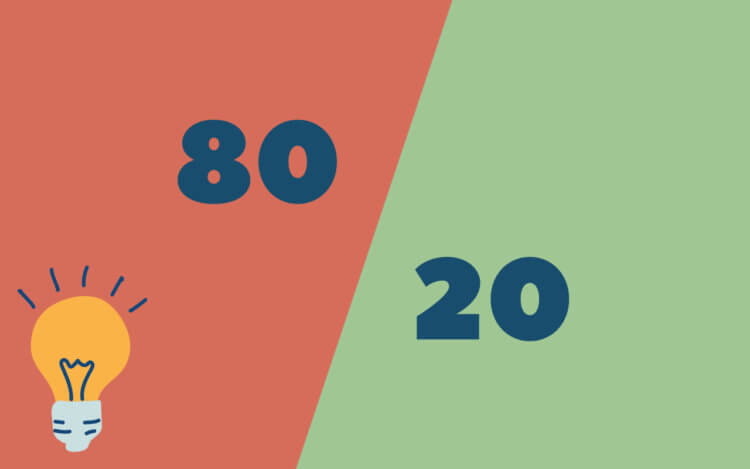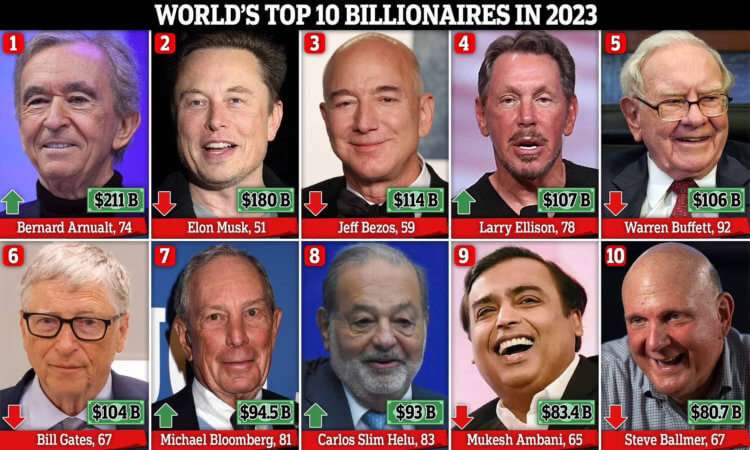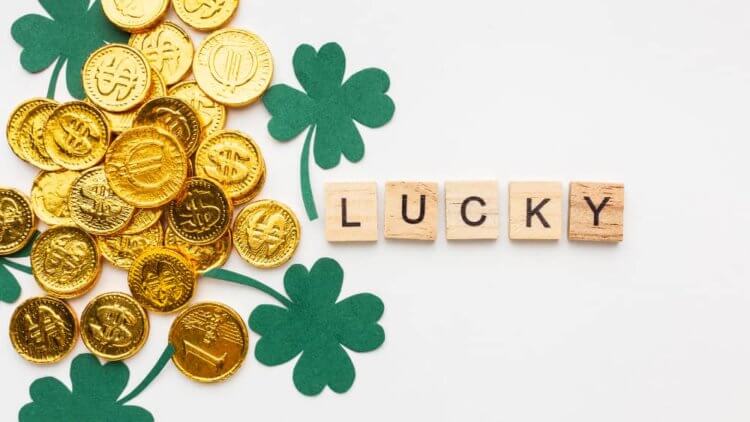What qualities do you think a person needs to get rich? It has long been believed that only those of us with a sharp mind and special talent can make a fortune, but scientific research shows that luck plays the largest role in this difficult task. While human abilities are generally distributed as «normal» Thus, among the population (as, for example, height or weight), this does not happen with abundance, which, according to experts, is distributed according to a certain law, and luck plays a decisive role in it. The fact is that the distribution of wealth occurs according to a well-known scheme – the Pareto law or the 80/20 rule. It is estimated that 80% of the wealth belongs to 20% of the population. But how did this happen and who exactly do you need to be to become a billionaire? Let's find out!

According to scientific research, people do not become rich due to their high mental abilities or talent. So what is the secret?
Contents
- 1 Pareto's Law
- 1.1 Interpretation error
- 2 Your Honor, Lady Luck
- 3 Income Distribution
- 4 Money and Intelligence
Law Pareto
Pareto's Law states that 20% of effort produces 80% of results. This principle is to identify the best assets of the enterprise and use them effectively. This rule, however, is a prescription rather than a rigid mathematical law and is most often used in business and economics. This concept, however, is universaland can be applied to any area, be it wealth distribution, spending habits, or even personal relationships.
To understand how the 80/20 rule works, imagine that 20% of customers receive 80% of a company's revenue. From this point of view, it is beneficial for the company to focus on 20% of customers and sell products to them – in this way the company not only retains customers, but also acquires new ones. However, Pareto's law has a more fundamental meaning.

Essentially, the 80/20 rule simply emphasizes the importance of applying energy to those aspects of business – or life, sports activities, musical performance, blogging and etc. – which bring the best results.
This is interesting: How people make money without doing anything
The 80/20 rule was first used in macroeconomics to describe the distribution of wealth in Italy in the early 20th century, and was introduced in 1906 by Italian economist Vilfredo Pareto, who is best known for his concepts of efficiency. It all started when a scientist noticed that 20% of the pea pods in his garden accounted for 80% of the harvest and then extended this principle to macroeconomics.
Then, in the 1940s, Dr. Joseph Juran, a leading figure in the field of operations management, applied the 80/20 rule to industrial quality control, demonstrating that 80% of products were defective due to 20% of problems in production methods. By focusing on and reducing 20% of production problems, a business can improve the overall quality of its products.
Misconception
It should be noted that the 80/20 rule is only a prescription, not a hard and fast rule. mathematical law. Moreover, the input data simply represents different units of measurement, and their percentage does not need to be 100%. It is the concept that underlies the Pareto law that is important.

Pareto's Law, formulated in 1896, was named after the Italian economist Vilfredo Pareto.
So, even if the most important data is 20%, then the remaining 80% are no less important. But to think otherwise is a logical mistake. And although there is little scientific research that either proves or disproves the validity of Pareto's law, there are many examples that confirm that the rule itself is fairif not numerically accurate. Essentially, it’s about setting priorities and tasks, and then solving problems.
Read even more interesting articles on our Yandex.Zen channel – articles that are not on the site are regularly published there!
Your Honor, Lady Luck
But let's return to pressing questions about how to get rich and who did it. A priori, the generally accepted answer suggests that we live in a meritocracy, where talent and effort are rewarded with wealth. However, numerous studies show that economic success does not always correlate with talent. Thus, a 2018 paper states that the myth about the connection between talent and effort has been «destroyed» new computer model.
In the study, a team of scientists led by Alessandro Plucino from the University of Catania (Italy) developed a computer model that showed that the most successful people are not necessarily the most talented – they are mostly just lucky. To test the extent to which factors such as human talent and luck are involved, scientists simulated the working lives of people (40 years long) with different talents and abilities.

It’s hard to admit, but someone is just lucky
More on the topic: Remains of an ancient slave who suddenly gained wealth were found in Pompeii
This is because during this time we experience a series of happy and unhappy events that affect our well-being. Surprisingly, the recreation reflected that the richest people are not the most talented, but the luckiest. The study's authors also noted that the distribution of wealth in the model matches what happens in real life: 80% of the population owns 20% of the wealth.
The 80/20 rule applies because 80 percent of the population owns only 20 percent of the total capital, while the remaining 20 percent owns 80 percent of the same capital, explain the authors of the scientific work.
Indeed. , although one might expect the most talented people to be the most successful, the model contradicts this. Maximum success never coincides with maximum talent, and vice versa. Thus, the findings cast doubt on the idea that success is a matter of talent and effort alone.
Likewise, luck is believed to play a fundamental role in determining economic success, as luckier people tend to accumulate more wealth throughout their lives.
Income distribution
On the other hand On the other hand, the findings of Plucino and his team have important implications for society as a whole, for example in areas such as business or the allocation of funds for scientific research, as emphasized at the Massachusetts Institute of Technology.

Can money buy happiness?
In this regard, according to scientists, models of fair or random distribution of funds turn out to be the most effective strategies for maximizing profits by taking advantage of serendipitous discoveries that can lead to important advances. And, as we know, there are quite a few such examples in history.
Don’t miss: Money influences happiness more than previously thought
Finally, Plucino's research highlights the importance of recognizing the role of chance in success and the distribution of wealth. In a world where merit and effort are valued, experts say it's important to understand that luck also plays a crucial role. But what about high mental abilities? Must a lucky person have a sharp mind to become part of the world's financial elite?
Money and intelligence
So, if you were born into a rich family, this event can be considered a stroke of luck. The same is true about winning the lottery, which is not the result of years of hard work. If we take this argument even further, we can come to the conclusion that being smart is luck in itself.
In fact, there is no doubt that intelligence contributes to a person's economic and professional success. For example, billionaires such as Elon Musk, Jeff Bezos and Ray Dalio are self-made, just to name a few. It would be surprising if the leading innovators in cutting-edge fields such as technology and finance turned out to be average and unremarkable people.

The richest people in the world for 2023
You will be interested: Is it possible to buy happiness and how much money do you need for this?
Moreover, intelligence is a better predictor of both educational achievement and job performance, and academic and professional success are, in turn, fairly good predictors of income. However, not all people with a high IQ strive for wealth; they are often driven by a thirst for knowledge. Some even choose a comparatively less highly paid job that brings more intellectual satisfaction.
In general, researchers believe that intelligence, education, and socioeconomic status are important in matters of income, but these factors themselves are are unlikely to fully explain individual differences in well-being. And this is where luck comes into play.

Some people are just lucky
Do you know why all people have different ideas about happiness? The answer is here!
As Plyuchino's study emphasizes, the statistical distribution of wealth is different from the distribution of intelligence. Intelligence is “normally distributed” and is approximately average for most people. Wealth, on the other hand, is defined according to the Pareto principle, which means that 80% of global wealth is in the hands of the lucky 20% (which is, of course, unfair).